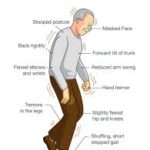7 Common Symptoms of Hypertension

Hypertension, commonly known as high blood pressure, is a chronic medical condition where the force of the blood against the artery walls is consistently too high. Often referred to as a “silent killer,” hypertension may not present obvious symptoms in its early stages, making it crucial to understand the subtle signs and potential health impacts it can have over time.
What is Hypertension?
Blood pressure is measured using two numbers: systolic pressure (the pressure when the heart beats) over diastolic pressure (the pressure when the heart rests between beats). A normal blood pressure reading is typically around 120/80 mmHg. Hypertension is diagnosed when blood pressure readings consistently exceed 130/80 mmHg.
“Beat the Pressure: A Comprehensive Guide to Lowering Blood Pressure Naturally.”
Buy book from Gumroad or Paystack
Symptoms of Hypertension
Many individuals with hypertension do not experience noticeable symptoms, which is why regular screenings are important. However, when symptoms do appear, they can vary and may include:
- Headaches
Persistent or severe headaches, especially at the back of the head and in the morning, can be a symptom of elevated blood pressure. These headaches are often dull or throbbing. - Dizziness or Lightheadedness
High blood pressure can affect the circulation to the brain, causing dizziness or a feeling of being unsteady. - Blurred or Double Vision
Elevated blood pressure can damage the blood vessels in the eyes, leading to vision problems such as blurred or double vision. - Chest Pain or Pressure
Though more commonly associated with heart conditions, chest pain can sometimes be linked to uncontrolled hypertension and should be taken seriously. - Shortness of Breath
Difficulty breathing or feeling breathless may occur if hypertension has affected heart function or caused fluid buildup in the lungs. - Nosebleeds
While not common, frequent or unexplained nosebleeds can be a symptom of severe hypertension. - Fatigue or Confusion
In some cases, very high blood pressure can cause fatigue, confusion, or difficulty concentrating, indicating possible damage to organs such as the brain.
Why Hypertension Symptoms Can Be Subtle
Hypertension often develops gradually over many years without causing symptoms. This asymptomatic nature is why it is often undiagnosed until serious complications arise, such as heart disease, stroke, kidney failure, or vision loss.
When to See a Doctor
If you experience any of the symptoms listed above, especially if they are severe or persistent, it is important to seek medical attention promptly. Regular blood pressure checks are recommended for adults, particularly those with risk factors such as obesity, sedentary lifestyle, family history of hypertension, or other cardiovascular conditions.
Conclusion
Understanding the symptoms of hypertension is critical for early detection and management. Because many people may not feel any symptoms until significant damage has occurred, proactive monitoring and lifestyle changes are the best defenses against the dangers of high blood pressure. If you suspect you may have hypertension or are at risk, consult your healthcare provider for proper evaluation and treatment.
💔 “She said she loved me. And for fifty-two years, I believed her.” 💔
Buy The Book "The Longest Lie: A Husband’s Journey Through Love, Betrayal, and Redemption" From Gumroad






